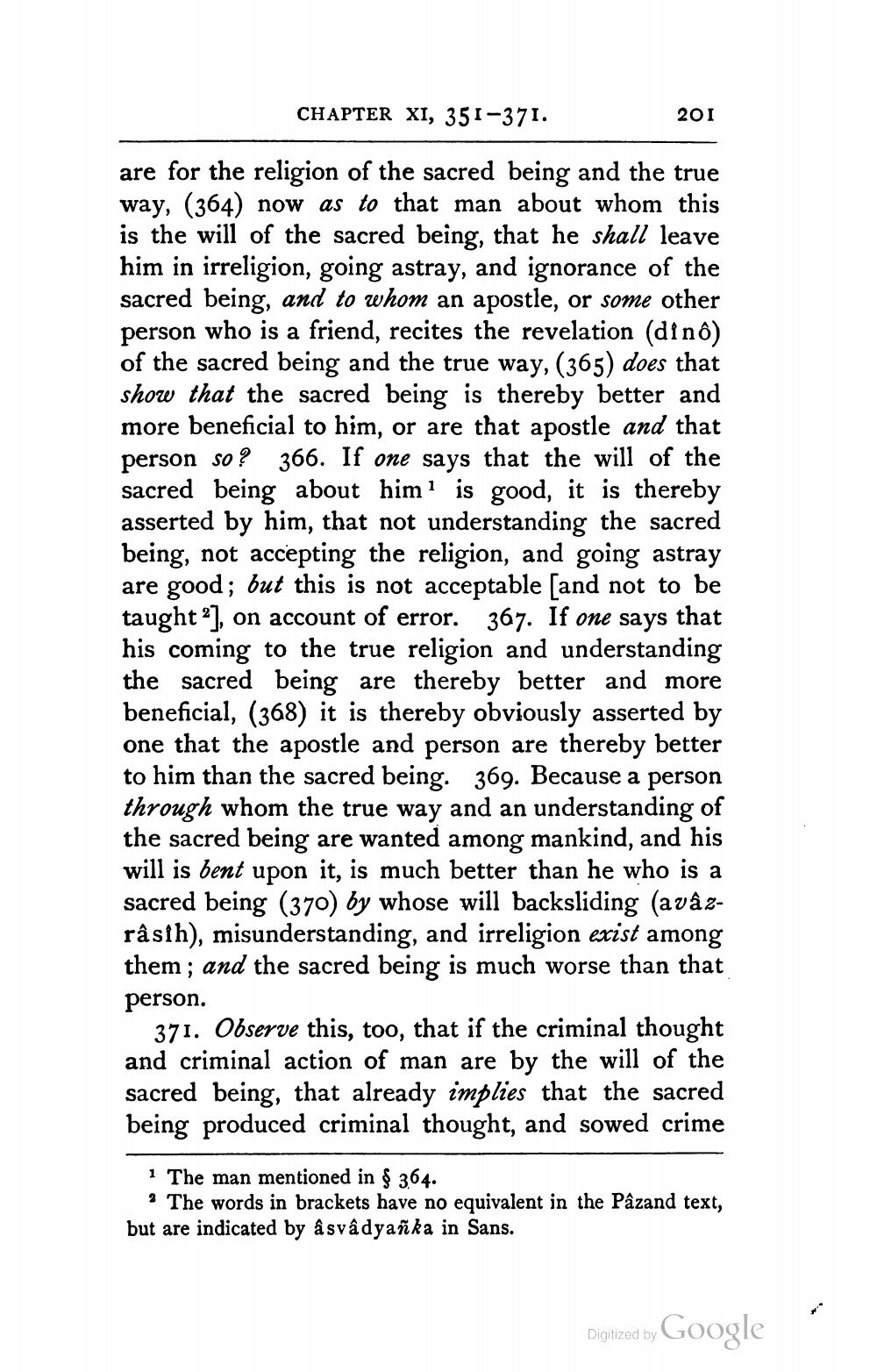________________
CHAPTER XI, 351–371.
201
are for the religion of the sacred being and the true way, (364) now as to that man about whom this is the will of the sacred being, that he shall leave him in irreligion, going astray, and ignorance of the sacred being, and to whom an apostle, or some other person who is a friend, recites the revelation (dino) of the sacred being and the true way, (365) does that show that the sacred being is thereby better and more beneficial to him, or are that apostle and that person so ? 366. If one says that the will of the sacred being about him is good, it is thereby asserted by him, that not understanding the sacred being, not accepting the religion, and going astray are good; but this is not acceptable (and not to be taught], on account of error. 367. If one says that his coming to the true religion and understanding the sacred being are thereby better and more beneficial, (368) it is thereby obviously asserted by one that the apostle and person are thereby better to him than the sacred being. 369. Because a person through whom the true way and an understanding of the sacred being are wanted among mankind, and his will is bent upon it, is much better than he who is a sacred being (370) by whose will backsliding (avâzrâsih), misunderstanding, and irreligion exist among them; and the sacred being is much worse than that person.
371. Observe this, too, that if the criminal thought and criminal action of man are by the will of the sacred being, that already implies that the sacred being produced criminal thought, and sowed crime
1 The man mentioned in $ 364.
The words in brackets have no equivalent in the Pâzand text, but are indicated by a svadyanka in Sans.
Digitized by Google




